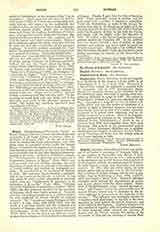www.catholic.com/encyclopedia/peter-stephen-duponceau


Click to enlarge
- Duponceau, PETER STEPHEN, jurist and linguist, b. at St-Martin de Re, France, June 3, 1760; d. at Philadelphia, U.S.A., April 1, 1844. Educated in a Benedictine college, he exhibited a marked taste for languages, and in 1777 accompanied Baron Steuben to America, serving as his secretary in the Revolutionary army, with rank of captain, until compelled by ill-health to resign in 1781. He settled in Philadelphia, studied law, and was admitted to the Bar. Throughout a long life he was identified with public affairs and was also author or translator of a number of legal or historical treatises, but his fame rests chiefly upon his studies of the native American languages at a period when ethnology was as yet hardly recognized as a science. Most of his linguistic papers appeared in volumes of the American Philosophical Society (Philadelphia), of which he was a member from 1791 and president from 1827 until his death. His memoir on the grammatical system of the Indian languages (Mémoire sur le système grammatical des langues de quelques nations Indiennes de l’Amérique du Nord) won the Volney prize of the French Institute in 1835.
JAMES MOONEY
Enjoying this content? Please support our mission!Donatewww.catholic.com/support-us

